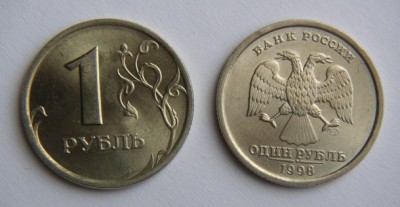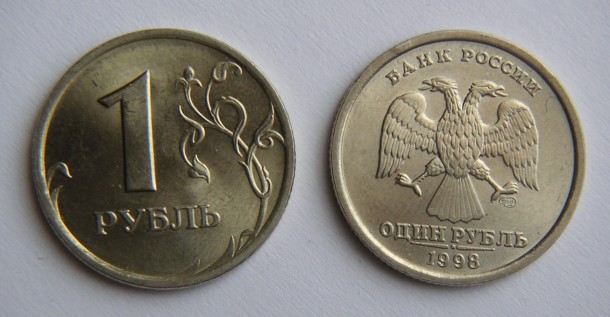
The European Union is considering barring investors from buying new Russian sovereign debt and speculation is mounting that the United States may make a similar move, in retaliation for Moscow’s role in the Ukraine conflict.
Russia has considerable reserves to draw on – currently around $469 billion in gold and foreign exchange – and no immediate need to tap the markets for new capital. Many argue the measure would be more symbolic than punitive.
However, the country’s dependence on increasingly unstable oil and gas revenue and commitments by Moscow to provide finance to sanctioned companies prevented from raising money abroad could see it backed into a corner.
“It’s quite difficult to tell how long they have, I’d put it at more than one year. But it’s not static,” said Viktor Szabo, a portfolio manager at Aberdeen Asset Management.
The strain on those reserves is growing, Szabo said. Economic growth is ebbing fast, with gross domestic product expected to grow by 0.3 percent at most this year and energy export revenues are falling.
A run on the currency would also shorten the time Russia can continue in isolation, Szabo said.
Ratings agency Moody’s said in a recent research note that further sanctions “would erode key credit strengths in the external and fiscal sphere.” One effect would be broader risk aversion towards Russian assets, the agency said. That would lead to capital flight and in turn put further strain on the country’s foreign exchange reserves.
“And let’s not forget… the state-owned companies have now started to ask for recapitalisation. If it’s in hard currency, it has to come out of reserves. And we’re talking about pretty chunky demands. It’s not a couple of billion dollars, it’s tens of billions of dollars,” Szabo added.
Russia’s central bank has pledged to support domestic banks hurt by the last round of sanctions, such as the country’s second-largest lender, VTB. The head of oil producer Rosneft has also sought 1.5 trillion roubles from the government to support it against sanctions.
Even Russian companies not directly affected by sanctions have found raising money in western capital markets harder since the Ukraine conflict escalated and spooked many investors.
A particular headache is the falling price of oil. Oil and gas account for around two-thirds of Russia’s exports and close to half its federal budget revenues. Over the course of a year, each $1 fall in the oil price wipes around $1.4 billion off federal tax revenues.
The state budget is based on an oil price of $104 for 2015, and Deputy Finance Minister Alexei Moiseev has warned recently those projections may be optimistic, with prices below $100 now a possibility.
Craig Botham, an economist at UK fund manager Schroders, also calculates Russia’s foreign exchange reserves would take little more than one year to be depleted.
“If we assume the full $80 billion of external debt maturing this year is financed by the central bank … and the same amount of financing is needed each year, the average monthly rate of decline in the reserves so far this year – $6.7 billion – continues indefinitely as the central bank continues to defend the currency, then FX reserves are exhausted some time in 2016,” he said.
Russia’s finance ministry declined to comment on the prospect of sanctions on new debt. But a source close to the ministry said such a measure would be keenly felt.
“This could cause a huge pain of trying to find financing, for next year. Some magic would have to performed, to say it mildly, to ensure budget deficit is covered and state coffers not depleted all at once,” the source said.
Finance Minister Anton Siluanov said in an interview before the news of a possible ban on buying bonds that finding funding for the expected 1 percent of GDP budget deficit next year will be tough – even if domestic borrowing were to be increased.
“This year we are having hard time raising 450 billion roubles,” Siluanov told the local business newspaper Vedomosti. “Next year we are to borrow 1.1 trillion roubles – do you see the difference?”
Foreign investors account for a little over a quarter of the domestic sovereign bond market, according to central bank data.
Russia’s debt-to-GDP ratio stands at around 12 percent – a level many European countries would envy – and the state’s refinancing burden looks light for the next couple of years.
Government debt stood at $54.6 billion as of July 1, and according to the central bank, the government has to redeem $1.18 billion by year end. In 2015, it must redeem around $3.3 billion. More than $46 billion is due from two years time, meanwhile.
But long-term budget numbers are not healthy. Growth is expected to remain stagnant, tax revenues to hardly increase and the pension burden to expand as the population ages. Limiting access to funding now will force the government to deplete its fiscal reserves quickly.
Russia cut its domestic borrowing plan by half earlier this year, to about 435 billion roubles ($11.62 billion). So far, it has raised a bit more than half of it, but the Ukraine conflict has made issuance expensive and forced the ministry to cancel seven treasury auctions in a row.
Yields had already spiked to levels not seen since the early 2009 when they reached record highs in the aftermath of the global financial crisis. Consequently, a limit on the number of foreign players would not have an immediate effect, traders say.
The finance ministry could also manage without the some $5.5 billion that remains to be raised this year. A weaker rouble and higher-than-expected oil prices this year are putting the budget in surplus.
Problems will emerge next year, however. Russia has planned to raise $7 billion on foreign markets, in addition to the 1.1 trillion roubles to be issued in bonds domestically.
Limiting the number of foreign investors is likely to result in the ministry’s cutting its borrowing plans for next year or paying record-high interest. It would also set back the developing local bond market.
“If (western investors) are banned – there will be no fresh money,” said Andrei Valekho, senior portfolio manager at Kapital investment house, which invests in the local treasury bonds.
“It would be a very unpleasant moment. If the situation drags on, the market will stagnate.” (1 US dollar = 37.4272 Russian rouble)
Reuters


Leave a Reply
You must be logged in to post a comment.